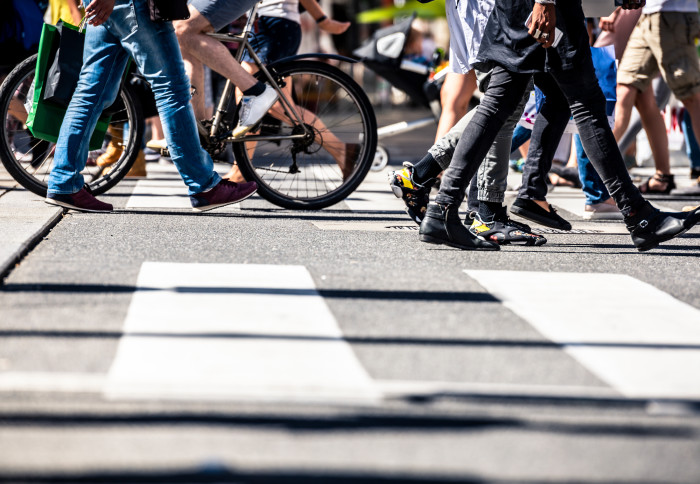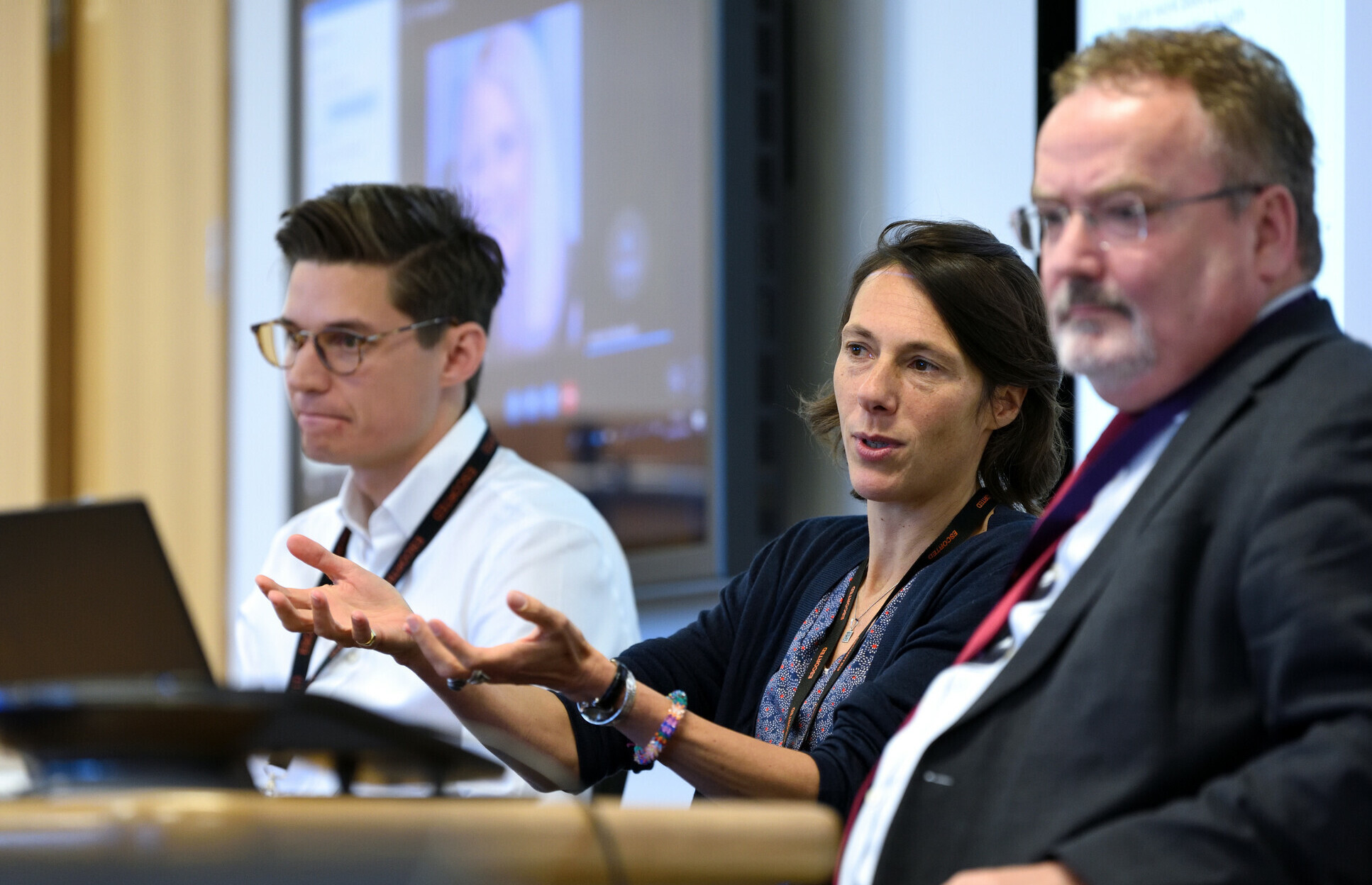Active travel revolution: Imperial experts contribute to think tank report
by George Hope

Imperial researchers have contributed their expertise to a flagship think tank report, urging for action to fairly decarbonise how we travel.
All aboard: A plan for fairly decarbonising how people travel was published this month by the Institute for Public Policy Research (IPPR), in collaboration with Imperial's Transition to Zero Pollution initiative.
The report outlines a vision for a transport system that is fair to all, works to improve people’s health and wellbeing and provides a better environment for nature.
The transport sector is currently the number one contributor to the UK’s greenhouse gas emissions. IPPR analysis shows that the Climate Change Committee’s preferred approach to decarbonisation could lead to an 11 per cent rise in traffic between 2021 and 2050 and a 28 per cent increase in car ownership, rising from 34 million cars owned today to 43.6 million in 2050.
Giving people access to make good choices is key and the report does well in highlighting this. Professor Robert Shorten Imperial College London
By placing an overwhelming focus on electric vehicles in transport decarbonisation strategies - whilst an important part of our future system - we miss endemic issues and inequalities in transport, argue the authors.
The report called for a shift in the current approach, increasing walking and cycling investment by the UK government to at
least £6 billion over the term of this parliament, £4 billion more than is
currently committed. It also calls for grants and loans to allow people to buy bikes and e-scooters to support a move away from owning a private car.
Professor Robert Shorten, Chair in Cyber Physical Systems Design at the Dyson School of Design Engineering, whose papers were cited in the report, said: "People often make poor choices for very good reasons – poverty being one of them. Giving people access to make good choices is key and the report does well in highlighting this."
The report also points to the harm caused by raw materials and production processes associated with vehicle production, which alone will stop us achieving a fair and zero-pollution mobility system.

Professor Mary Ryan, Vice-Dean (Research) in the Faculty of Engineering and College Champion for Zero Pollution, is quoted responding to this issue: "[the move to electric could lead to us] reaping problems from mining the critical materials used in batteries, most of which doesn’t take place in this country. That’s not taking a global approach to pollution: it’s simply offshoring our problems."
Improving people's health and quality of life whilst tackling climate change
The report points to the health costs of continuing the status quo, versus the potential improvements to people's quality of life of more ambitious policies. Whilst transport contributes to some of today’s greatest public health challenges, the report argues that "if the right policies and investment are put in place, walking and cycling can have an important role to play in improving population health."
We’ve been making the case for solutions to tackle climate change through urban changes that promote active travel. Not only do these reduce emissions, but also improve health and wellbeing. Dr Audrey de Nazelle Imperial College London
The report references three papers co-authored by Imperial's Dr Audrey de Nazelle, Senior Lecturer in the Centre for Environmental Policy and lead of Imperial's Network of Excellence in Air Quality.
One paper demonstrated the huge potential for walking and cycling to contribute to climate change mitigation. Analysis of longitudinal data from seven European cities found that cyclists had 84 per cent lower life cycle CO2 emissions than non-cyclists.
Another paper showed that in urban areas cycling has also been associated with good self-perceived health, mental health, vitality and fewer feelings of loneliness. A third paper was referenced to demonstrate that taking up cycling, or increasing existing levels of cycling, is associated with a lower BMI than car use.
Dr de Nazelle said: "We’ve been making the case for solutions to tackle climate change through changes in the urban form that promote active travel. Not only do these reduce emissions, but also improve health and wellbeing, increasing physical activity, reducing stress and improving physical and mental health."
Imperial's vision for a sustainable zero pollution future
In September, the College launched a new strategic programme Transition to Zero Pollution, one of the first initiatives of Imperial's new Academic Strategy, with a launch event featuring a keynote speech from Mary Robinson. The initiative captures our vision to transform the way we think about pollution, bringing together ideas around resource management, health and environmental impacts, socio-economic and human behaviour in a ‘whole system’ approach.
Imperial College London is grateful for the support of the UKRI Strategic Priorities Fund for carrying out this work.
Article text (excluding photos or graphics) © Imperial College London.
Photos and graphics subject to third party copyright used with permission or © Imperial College London.
Reporter
George Hope
Office of the President
